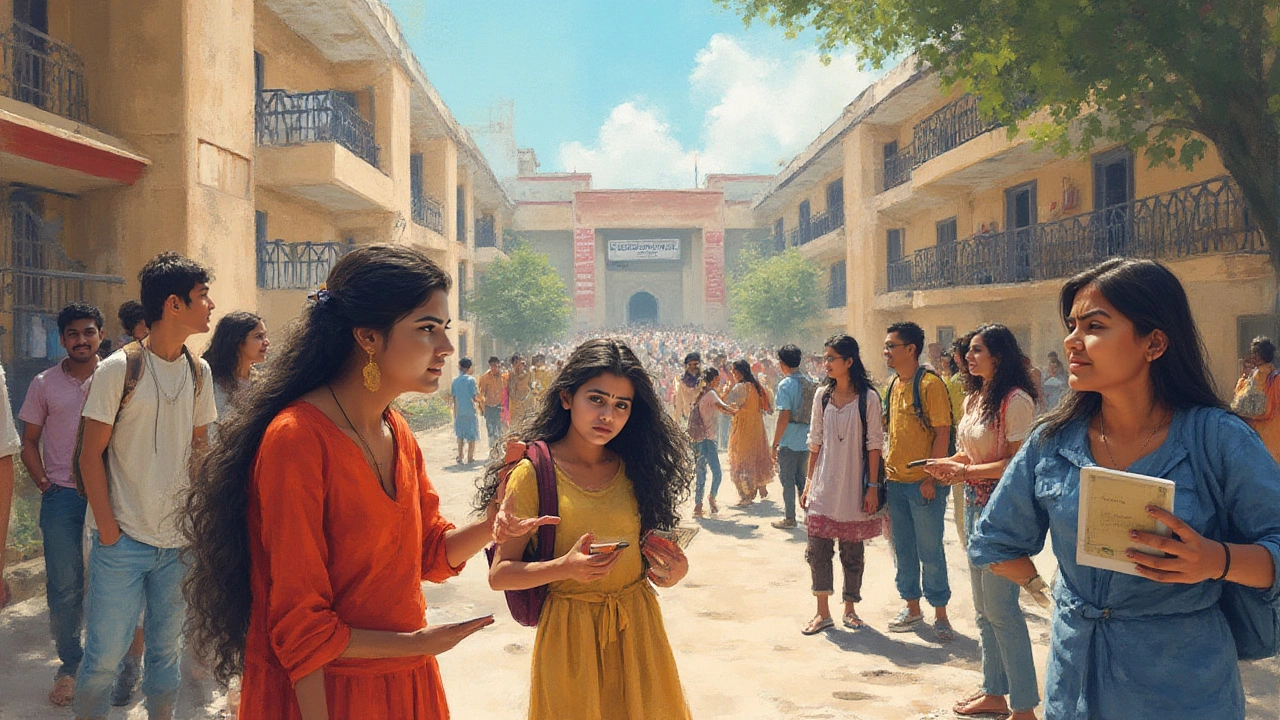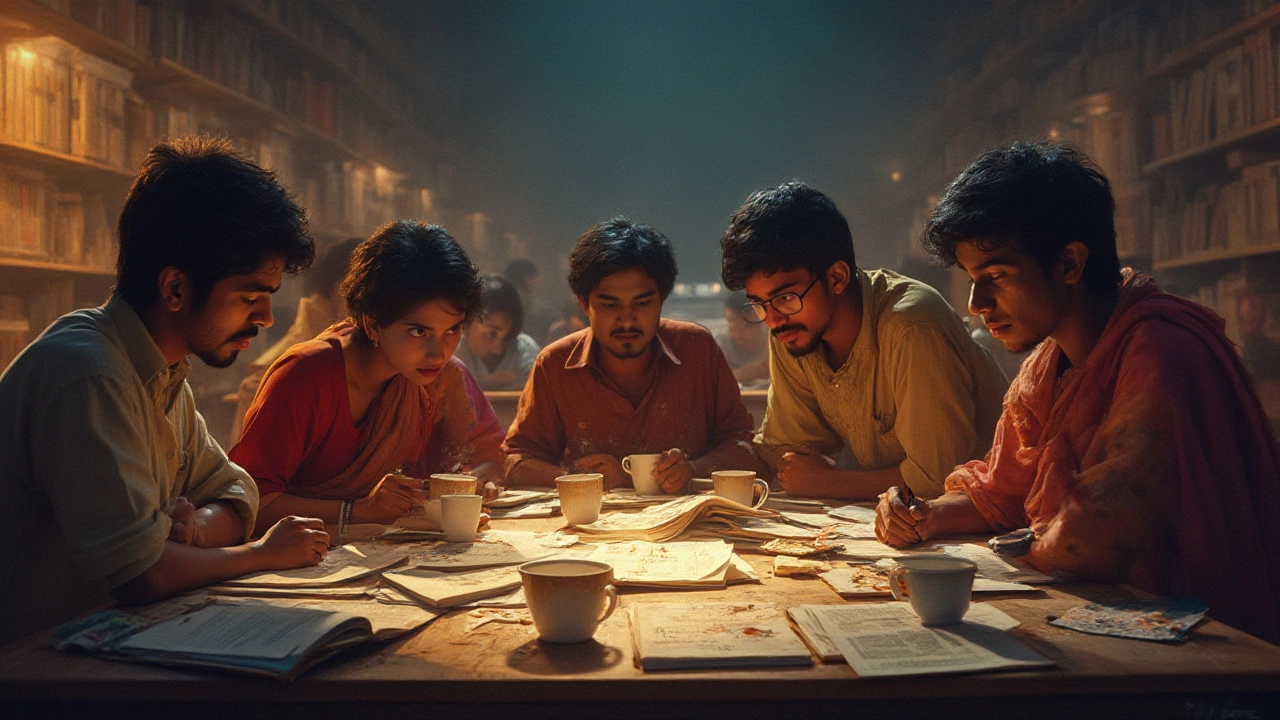Picture a student hunched over books at 2 AM, scribbling formulas that look like secret codes, while their phone buzzes with memes and missed calls. In India, the race for academic glory isn’t just about marks on paper — it’s a rollercoaster of marathon study sessions, relentless competition, and a question that sparks heated debates in every chai corner and family WhatsApp group: which degree is actually the toughest? More than just a flex, this question shapes dreams, careers, and family bragging rights.
The Myth and Hunt for India’s Toughest Degree
You might think every degree has its fair share of sleepless nights, but let’s be real — not all majors are created equal. Some undergraduate and postgraduate programs in India have earned cult status for being especially brutal. Is it the mind-numbing syllabus, impossible entrance exams, or the grueling years of training? Maybe it’s all of them. You’ve probably heard rival claims about engineering (hello, IITs!), medicine, law, or even chartered accountancy being the mount Everest of Indian education. But what puts them on such a high pedestal of difficulty?
There have been studies from bodies like the National Institutional Ranking Framework (NIRF) and endless surveys by student communities such as Careers360 and Shiksha that rank difficulty based on everything from entrance crunch to the campus grind. These rankings, however, barely scratch the surface. Like my cat Luna stalking the red dot, every student chases their own notion of ‘hardest’ — maybe it’s the unending practicals in medicine, the crazy competition in IITs, or the relentless exam cycle of CA. But there’s little agreement on which degree is truly sitting at the top of Mount Tough.
Let’s check out the most talked-about contenders in this high-stakes academic showdown. Spoiler alert: what’s hardest for one might be a breeze for another. And that’s what makes this question endlessly fascinating to debate.
Engineering: The IIT JEE Gauntlet and Beyond
No discussion of tough degrees in India is complete without talking about the Indian Institutes of Technology (IITs). Getting in is practically legend — the Joint Entrance Examination (IIT JEE) is so tough, it has its own memes, coaching culture, and even movies dedicated to its pain. With over a million applicants every year and an acceptance rate slimmer than most Ivy League schools, this isn’t just a test, it’s a lifestyle. On top of that, students grind through Physics, Chemistry, and Math in ways that make Sudoku look like a toddler’s puzzle.
The real challenge doesn't end at passing JEE. Once inside an IIT, the academic heat turns up. Rote learning won’t get you far; professors expect analytical thinking, creative problem-solving, and back-to-back project submissions. Burnout isn’t uncommon, and a survey by IIT Bombay in 2023 found that more than half the first-year students felt overwhelmed in the first semester. It isn’t just the workload; there’s also the fierce competition from classmates, many of whom were school toppers in their own cities. That sense of ‘always playing catch-up’ is very real.
But is engineering always the hardest? Students from other fields would argue otherwise. As tough as an IIT engineering course is, for some, the true Everest lies elsewhere.
Medicine: The Unending Slog of MBBS and Beyond
If you think engineering sounds intense, wait till you meet med students. The sheer length of the journey is enough to scare off most people — five and a half years of MBBS (Bachelor of Medicine & Bachelor of Surgery), cracking entrance exams like NEET (which, in 2024, saw almost 2.5 million applications), compulsory internships, and then years more specializing if you want to truly stand out. The syllabus isn’t just thick; it’s dense with Latin terms, anatomical diagrams, and information you’re expected not just to memorize, but also to apply in messy real-world ways.
The pressure is relentless. Imagine learning about rare diseases at 3 AM, prepping for university theory exams while juggling long hours at hospitals. A 2022 study in the Indian Journal of Psychiatry quoted,
"Over 58% of undergraduate medical students in India reported high stress, with academic pressure being a significant contributor."This stress doesn’t let up — every semester has vivas, practicals, and clinical postings. Patients don’t follow textbooks, so students must constantly adapt.
The stakes feel incredibly high, too. Diagnostic errors aren’t just wrong answers on a test — they can mean life or death in the real world. Many MBBS students speak of missing out on social life, sports, and family events for years. If you spot a med student asleep on the Metro, let them nap!

Other Challenging Degrees: Law, CA, and UPSC
You’d be mistaken to think the academic agony stops with engineers and doctors. Imagine years spent buried under statutes and legal precedents — that’s the law degree. India’s top law schools like National Law School of India University (NLSIU) in Bangalore admit students through a test called CLAT, another exam with a ferocious reputation and very low acceptance rates. Law students are notorious for their relentless reading loads, moot courts, and internships in addition to regular classes. It’s a degree that teaches you to think, speak, and even argue with your snooze button.
If accounting is more your vibe, the Chartered Accountancy (CA) program in India is infamous for its dropout rates (around 90% never qualify as CA on the first go). The exams are designed to grill you — they need more than just bookkeeping. Analytical reasoning, regulation mastery, and late-night practice of tax law updates are all in the mix. You might study for years before finally earning those two coveted letters after your name. The Institute of Chartered Accountants of India (ICAI) does not sugarcoat it, and you’ll hear stories of students clearing final CA exams after multiple attempts and years of heartbreak.
And then there’s the UPSC Civil Services Exam, called “the mother of all exams” by many — it’s not a degree, technically, but preparing for it is a full-time course in itself. With over a million aspirants and selection rates sometimes below 0.2%, it’s a mountain few ever summit. Mastering huge volumes of syllabus, current affairs, and essay writing requires near-militant discipline. Most exam toppers talk about studying 10 hours a day for one to two years straight—think about that while you’re complaining about weekend homework!
What Makes a Degree the ‘Toughest’ for You?
The truth? Each of these degrees — whether engineering, medicine, law, or CA — comes with its own intense battles. For some, the pressure of back-to-back exams is the killer. For others, it’s the sheer volume of reading, practical application, or facing real human lives in hospitals. And the toughest degree isn’t always the one with the most pages or longest exam papers — it might be the one that feels toughest to you, tailored to your strengths (or weaknesses) and passions.
It’s also worth mentioning how support systems matter. Family expectations, mentorship, mental health resources, or that one friend who brings you chai during all-nighters can mean the difference between giving up and going on. More universities are recognizing this — IITs now have counseling centers, medical colleges run support groups, and online forums like Reddit’s r/IndianAcademia buzz with peer-to-peer help.
You might have parents whispering that ‘MBBS is gold’, while your cousin swears by engineering, and your neighbor’s kid’s best friend’s uncle will argue CA is a living nightmare. Everyone’s mountain feels tallest when you’re the one climbing it. The best tip? Find something you genuinely like, because grinding through a tough degree is just a bit less torturous if the subject excites you on some level. Nailing your basics, building a smart routine, joining a study group, and scheduling in breaks — even if it’s just cat videos (Luna approves) — keeps the crazy manageable.
Tips to Survive and Thrive in India’s Toughest Courses
Feeling inspired, or just more terrified? Here’s the survival kit most high-achievers swear by after braving India’s hardest degrees:
- Toughest degree in India or not, consistency matters way more than marathon cramming. Make a routine — your brain will thank you.
- Break down monstrous syllabuses into bite-sized chunks. Use spaced repetition apps or old-school flashcards.
- Find good mentors — seniors love giving advice, sometimes even unsolicited. Don’t hesitate to ask questions, even if you feel silly.
- Take mental health seriously. Notice warning signs like burnout, constant anxiety, or isolation. Most campuses have health centers; use them.
- Learn active reading — skimming is great for WhatsApp forwards, but your textbooks need more attention. Highlight, underline, and take notes.
- Sample group studies — they help if they don’t end up as gossip sessions! Make the most of peer-to-peer teaching, which doubles your learning speed.
- Don’t neglect sleep, exercise, and tiny joys like a walk or a funny TV show. Your brain can’t run on just caffeine forever.
- If you face bottlenecks — like not clearing an exam after several attempts — try changing your strategy or seeking expert advice. Sometimes, it’s the method that needs fixing, not your ability.
- Track your progress, reward yourself for milestones (even mini ones), and remember that everyone struggles, even the toppers.
- Remember that grades, while important, aren’t everything. Skills, curiosity, and the ability to bounce back matter more in the long run.
Degrees in India are tough — sometimes famously, even frighteningly so. But every ‘impossible’ syllabus cracked, every entrance conquered, is a story of grit, smart strategy, and just a little bit of luck. The key? Make the struggle worth it. Trust yourself, and don’t be afraid to switch gears if one path isn’t bringing you joy or purpose. After all, even the hardest mountain climb starts with deciding to take that first step — and maybe bringing some extra snacks (or a Luna) along for the ride.
